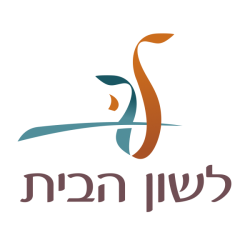David: There were Jews who were informers. The man informed the governor and the governor sent two soldiers to our house. My mother begged: “I am a widow, have mercy on me”. The soldiers ignored her pleads. Back in the day, when my father was alive, we used to bribe the soldiers who came to our house with food. We hid the pots between the straw.
When the Imam died, the pogroms began. It was the Lord’s gift to us to come to the Land of Israel. The pogroms expedited our Aliya. I had an Arab friend who told me: “You go see Al-Quds (That’s how the Land of Israel was called), your husband will be taken, they will drown him, and you’ll be married to another.” I told her: “Don’t worry, nothing will happen.” The non-Jews didn’t want us to leave. We left, and took our Passover dishes with us, not before we separated it from our everyday dishes. We took money and almonds and raisins for our journey.
We had a layover at some non-Jews who we paid to stay overnight. The next day we kept moving. We reached camp Ḥashed in ʿAden. My daughter, Shoshana, had a fever and she was taken to a hospital. I refused to leave her, they said they will take her, but I insisted not to leave her apart.
The nurse at the immigrant camp thought I didn’t know Hebrew. I did know Hebrew, since in my childhood the synagogue was right next to my house. We used to stick our heads in the windows and recite the men’s prayer.
My daughter was 18 months old. The nurse told me: "her fever is rising because of you". I answered: "she does not have a fever, she is healthy". The nurse said: “come tomorrow at one o’clock.” We agreed. The next day I arrived. I asked the Yemenite guard to steal the child. He asked: “What if they’ll put me in jail?” I answered: “If they come to you, tell them that her mother came and started throwing stones at you, and that you were scared. Tell them I jumped on you, so you gave me my daughter and ran away.” I told him: “let them put me in jail.” He told me to come at 22:00, he intended to help me. Meanwhile the nurses are having fun drinking tea. The children are asleep. I asked the guard to cover her with a blanket, so they won’t detect her. I wrapped her with a blanket, covered her mouth with my hand, and gave the guard 2 pennies. I told the guard that no matter what, even if they’ll put me in jail, I will not give away my daughter. I wanted her with me before we move to Kibbutz Ein Shemer.
They announced that we are coming to Israel.
Ratsaby: What did you take with you on the plane?
David: I took my two children and the clothes I worn. I had jewelry, bracelets, which I sold on the way for food. The money went for the building we stayed in for 3.5 years. We came to the Land of Israel – an absolute wilderness. Where is the land of milk and honey? It took us an hour to light up Shabbat's candles.
Ratsaby: Where?
David: in Kibbutz Ein Shemer, they gave us room that was once occupied by the English. On Shabbat they gave us cheese and bread. We called it Ruthi. They gave us delicious black olives, but we weren’t used to it so we threw it away. We were there, at Ein Shemer, for 9 months. We wanted to be independent, to work ourselves. We paid money to live there, but we have children to support. I already had my son Yosef. And another family lived with us in the same tent.
Ratsaby: Where did you wash your hands or went to the toilet?
David: The toilet was far from the tent. It was shared. There was a line of taps.
Ratsaby: Where did you have food from?
David: Many women were cooking in the dining room of the Kibbutz. My husband would go there 3 times a day.
Ratsaby: How did they know how much food to give you?
David: By the number of people stated in a card that was given to us. We were four. I was pregnant and my husband didn’t let me leave the tent. He was afraid the child will be taken away. There were rumors about children being abducted in Kibbutz Ein Shemer. I said: “I can’t give birth whilst there are other people in the tent.” We were two families sharing one tent, four members in each family, and our beds were right across from them.
Ratsaby: What did you do when a child needed the toilet?
David: I would take them. There was one beside the tents.
Ratsaby: But what if it rained?
David: We would go out. What else could we do. Once the tent-pole broke from the heavy rain. It broke on us, me and children. We only had a torch. No electricity.
Ratsaby: Who gave you a torch?
David: The government.
Ratsaby: How did you light the torch?
David: With petrol. Those who were in charge would fill it up. They took care of us.









